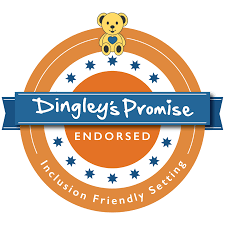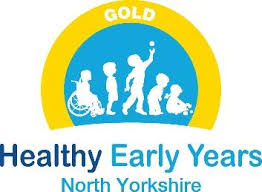Computing Intent Statement Thirsk Community Primary School
At Thirsk Community Primary School, our Computing curriculum is designed to foster a sense of ambition and excitement around using technology. We aim to equip our pupils with the skills, knowledge and confidence to thrive in an increasingly digital world. Through purposeful exploration and ‘tinkering’, pupils develop the resilience and independence needed to navigate new and evolving technologies with curiosity and assurance.
We are committed to inclusion, ensuring that every child, regardless of starting point or background, has access to high-quality computing experiences that promote digital competence and a wide range of transferable skills. Our curriculum is carefully sequenced to avoid cognitive overload, allowing pupils to build on prior knowledge through small, manageable steps. Regular opportunities for feedback—both peer and teacher-led—help pupils reflect, improve, and consolidate learning.
In line with our value of compassion, we place a strong emphasis on teaching pupils to be responsible digital citizens. They learn to engage respectfully and safely online, understand the implications of digital footprints, and recognise the importance of balanced technology use for their mental and physical wellbeing. Our curriculum also develops awareness of copyright, information reliability, and the ethics of digital content.
Oracy is woven throughout our computing lessons, supporting pupils to explain their thinking, collaborate effectively, and use technical vocabulary with confidence. Computing lessons also reinforce core literacy skills, promoting reading through the analysis of instructions, technical texts, and online information, helping pupils to become discerning and critical consumers of digital media.
Our Computing curriculum ensures progression towards the end-of-Key-Stage expectations set out in the National Curriculum. When combined with our PSHE and RSE curriculum, it meets the objectives of the DfE’s Education for a Connected World framework, preparing our children for a life of learning, participation and safety in the digital age.
Computing Implementation Statement Thirsk Community Primary School
At Thirsk Community Primary School, our Computing curriculum is implemented with a clear commitment to our values of ambition, compassion, and inclusion. We use the Kapow Primary scheme of work, which is carefully structured to deliver a rich, broad, and balanced Computing education for all pupils, regardless of their background or ability.
The scheme is built around the three core strands of the National Curriculum:
- Computer Science
- Information Technology
- Digital Literacy
These strands are delivered through five interrelated areas that pupils revisit throughout their learning journey in a cyclical, spiral model:
- Computer systems and networks
- Programming
- Creating media
- Data handling
- Online safety
This model ensures a carefully sequenced development of knowledge and skills, which helps to prevent cognitive overload by allowing children to gradually build on prior learning in manageable steps. Lessons are designed to activate prior knowledge, make learning visible through clear modelling, and provide scaffolded opportunities for deliberate practice.
Inclusion is at the heart of our curriculum design. Each lesson provides differentiated support and challenge, so that all pupils can access high-quality computing experiences, regardless of starting points or additional needs. Ambition is reflected in the progressive skill development outlined in our progression documents, which ensure all learners are supported and challenged to reach their full potential by the end of each key stage.
We actively develop pupils’ oracy through computing by encouraging them to explain processes, justify decisions, and use precise technical vocabulary during paired and group work. Opportunities for feedback are embedded throughout the curriculum using both peer and teacher-led strategies, allowing pupils to reflect, revise, and take ownership of their progress.
The curriculum promotes reading and language comprehension through the use of written instructions, key vocabulary, knowledge organisers, and digital content. These tools support knowledge recall and help pupils become discerning readers of both on-screen and off-screen information—an essential skill in the modern world.
Cross-curricular links are thoughtfully made with subjects such as science, art, and music, allowing pupils to apply computing in meaningful contexts and further develop their compassionate understanding of how technology can support people and communities. Our ‘Skills showcase’ units provide a platform for pupils to apply their learning creatively and collaboratively, reinforcing key skills and building confidence.
To ensure high-quality teaching, each unit includes comprehensive teacher guidance, subject knowledge videos, and CPD materials. These support staff in delivering lessons with clarity, accuracy, and confidence—particularly important as some teachers may feel less experienced in computing.
Through this consistent and well-supported approach, pupils at Thirsk Community Primary School are empowered to become confident, creative, and responsible users of technology, ready to take their place in an ever-changing digital world.
Computing Impact Statement Thirsk Community Primary School
At Thirsk Community Primary School, we strive to ensure that our pupils leave Year 6 as confident, creative, and responsible users of technology. The impact of our Computing curriculum is continuously monitored through a combination of formative and summative assessment strategies, including reflective discussions, knowledge catchers, end-of-unit quizzes, and teacher observations. These assessments, paired with visible learning strategies, help make learning explicit and provide meaningful insights into pupil progress.
Our approach ensures that all pupils, regardless of background or ability, can succeed—reflecting our values of inclusion, ambition, and compassion. We celebrate individual growth while promoting a collaborative ethos, ensuring every learner feels valued and supported in their journey.
To minimise cognitive overload, we sequence knowledge and skills carefully, allowing pupils time to revisit, reinforce, and build on their understanding. Feedback—verbal, written, and peer-led—is central to the learning process and helps pupils identify successes and next steps, while also strengthening metacognition.
The impact of our curriculum is that pupils will:
- Demonstrate ambition through growing independence, problem-solving, and confidence when engaging with new or complex digital tools.
- Use oracy skills effectively to articulate their thinking, explain processes, evaluate outcomes, and work collaboratively with their peers.
- Develop strong reading skills, using digital texts and technical vocabulary to interpret instructions, evaluate online information, and expand subject-specific language.
- Understand the importance of computing in their education, future careers, and everyday lives, developing a healthy, informed relationship with technology.
- Make compassionate digital choices, recognising the importance of respectful communication and online safety.
- Show clear progression in technical skills across all strands of the National Curriculum: Computer Science, Information Technology, and Digital Literacy.
- Use a range of software and hardware confidently and creatively, understanding how to choose appropriate tools to achieve a variety of outcomes.
- Work both independently and collaboratively, understanding the value of different perspectives and strengths in team settings.
- Be equipped to identify, avoid, and respond to online risks in a responsible and informed manner.
- Meet the end of key stage expectations for Computing and be well-prepared for the digital demands of secondary education and beyond.
Ultimately, our pupils will be empowered to navigate an evolving digital world with confidence, creativity, and kindness, ready to apply their computing skills as ambitious, compassionate, and inclusive citizens of the future.



